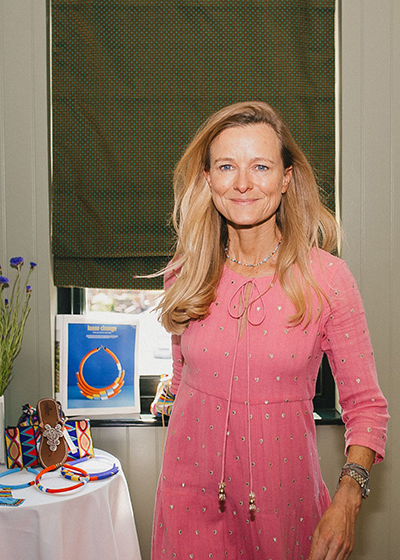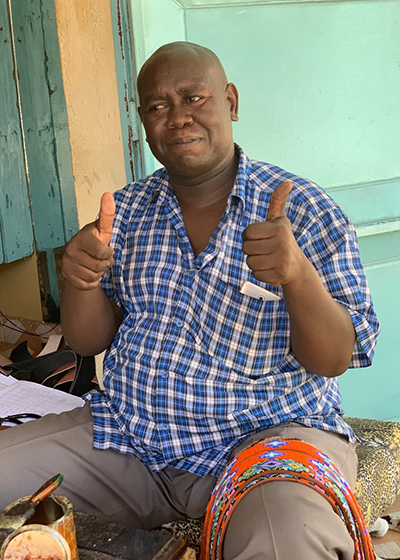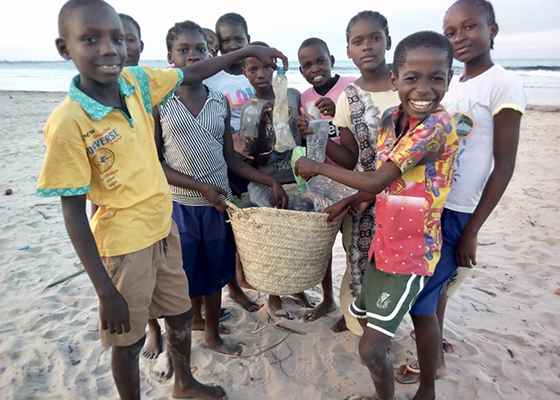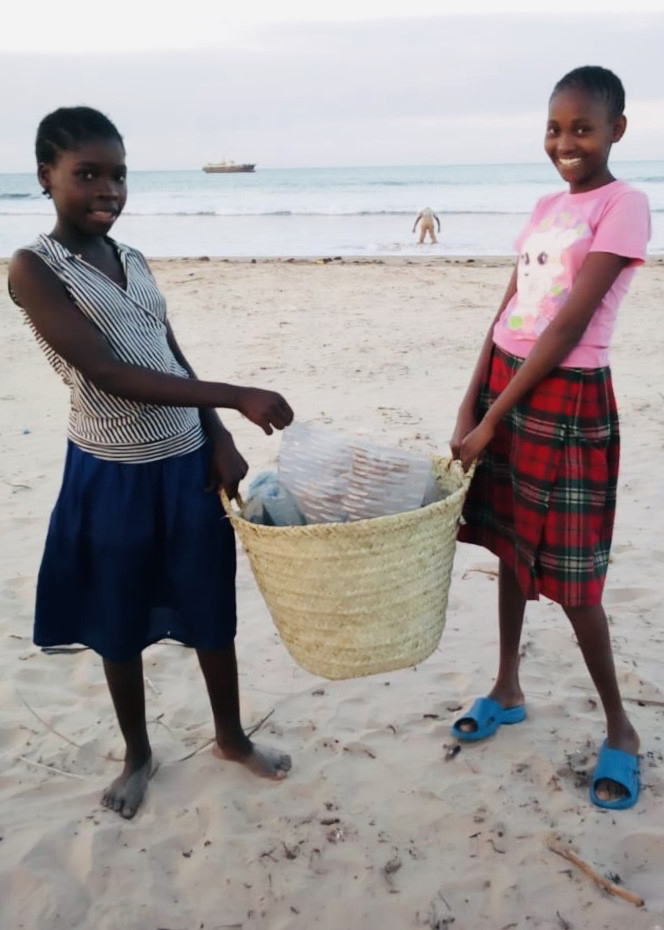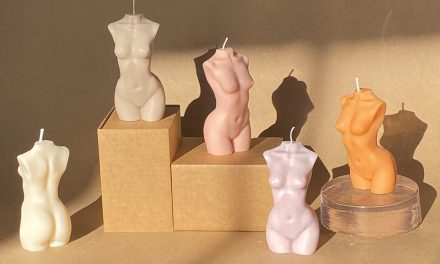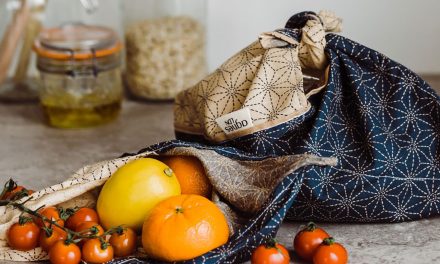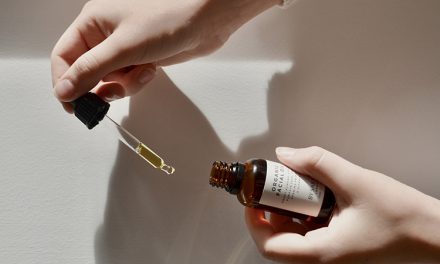10 Questions For Lucy Macnamara of Aspiga Beach
Image: Lucy Macnamara
Aspiga Beach is founded on the belief that great resort wear should be made well and benefit the people behind the brand. We spoke to Founder Lucy Macnamara about championing artisans and her new Kenyan Beach Clean initiative.
Travel obsessive Lucy was on holiday in Kenya in 2006 when she discovered a pair of beautiful beaded sandals. Those sandals and the crafts people of Kenya who make them became the first building blocks of Aspiga Beach. 13 years later, Aspiga Beach offers accessories and resort wear, made ethically by the same people Lucy met all those years ago. In that time Lucy, who previously worked for the Prince of Wales Charity, has mentored the makers, providing them with support both financially and holistically.
On a recent trip to Kenya, she was shocked at the amount of plastic rubbish that was washed up on the shores of Malindi beach. She decided to take action and since May 2019 she has cleared one basket of plastic for every pair of sandals sold. Local children are paid a fee for every basket of rubbish they fill, providing them a way to be more actively involved in their community and environment. We spoke to Lucy about the evolution of Aspiga Beach and how the Beach Clean is just one plastic free initiative she is working on.
The Vendeur: You began Aspiga after finding beautifully crafted sandals in Kenya. Why was it important to you to share what you had found with a wider market?
Lucy Macnamara: I thought they were beautiful and were incredibly well made. I really believed that people back in the UK would love them. If I could get some sales then it would help to give some of the wonderful local people a steady income. I’m passionate about fighting poverty and realised I could provide much needed jobs to local men and women in Africa, whilst also keeping their artisanal traditions alive. After two years of research and development I launched them to the trade in London. They were snapped up by 40 stockists including Fenwick of Bond Street. I was thrilled and at this point left my job to work full time on Aspiga.
TV: Your background is in the charity sector and philanthropy, why did you decide to make the move to growing a sustainable fashion brand?
LM: I always wanted to set up a business and work for myself. However at the same time I wanted to make sure that it also would be a business that would give back. When I found the sandals, I realised there was a gap in the market back here in the UK. I saw this as the perfect opportunity. Since then I have also started fund-raising for an orphanage in North Kenya.
TV: How important are the artisan’s stories to the brand?
LM: Their stories are very important as they are the lifeblood of the brand. Without them there would be no Aspiga. I am thrilled that so many of them support their extended families using their income from supplying to us. To be in partnership with these talented artisans and see their businesses grow is my greatest achievement.
‘I’m passionate about fighting poverty and realised I could provide much needed jobs to local men and women in Africa, whilst also keeping their artisanal traditions alive.’ – Lucy Macnamara
TV: What inspired you to start the ‘Beach Clean Up’ campaign?
LM: When I was out in Kenya in January 2018 , we went for a walk on the beach by the Marine park and one end was just full of plastic and plastic bottles. The beach was absolutely covered with them. It was a sight that I found really upsetting. However it wasn’t until I was out visiting my suppliers in April that I came up with the idea to do the Clean Up. I was so excited when I thought of it that I didn’t sleep the whole night.
TV: How is the campaign benefitting the communities around Malindi Beach?
LM: At present it is helping to clean the beaches, making them more tourist friendly and a better environment for the people that live there. However shortly we might start doing more of a clean up around the town too as there is still a lot of rubbish dumped around the region. Another benefit is that the kids who are doing the beach clean up are enjoying being involved in the project and supporting their community.
TV: Why was it important to you to include your customers in the campaign by collecting one basket of waste for every pair of sandals sold?
LM: It’s important for us to continually communicate our values to our customers as that is the bedrock of the whole brand and why our customers shop with us. It’s also great for our customers to feel directly part of the initiative too as many feel powerless to help poorer communities. By purchasing a pair of sandals, not only are they contributing to an artisan’s income and helping them to keep using their skills, but they are also benefitting the artisan’s environment.
TV: What will happen to the waste that is collected?
LM: They will dispose of anything they collect at the recycling dump in the town. Kenya is moving forward with recycling and cleaning up so they do now have processes in place, which is great.
TV: How does Aspiga avoid plastic in day to day business?
LM: No one on the team buys water in plastic bottles. We all have a S’well Water Bottle on our desks that we refill instead. Additionally we ask our suppliers to send all our samples without plastic bags to avoid unnecessary packaging waste. We have also recently switched from sending out our goods in plastic mailing bags to paper bags and boxes. Aspiga has a long way to go yet but at every chance we get we are eliminating more and more plastic from our business.
‘Without the Artisans there would be no Aspiga. I am thrilled that so many of them support their extended families using their income from supplying to us.’ – Lucy Macnamara
TV: Do you think the consumer’s appetite for handmade fashion and accessories is increasing?
LM: I really believe that handmade fashion and accessories are growing in popularity. More and more people are realising the impact of fast fashion and learning to appreciate the beauty of what artisans can do. Our customers also know that our product is made to last, our sandals last for more than just a summer. By sharing our artisan’s stories our customer feels closer to the process too.
TV: You’ve grown the business from sandals to include a range of accessories and more recently a linen collection and beachwear, whats next for Aspiga?
LM: I think for now, that’s it for this year. We really had our hands full the last few months with the Clean Up and our recent Pop Up shop in London which was a great success. We will be focusing on new designs in the existing categories next year.
Disclaimer: The people and models in the images featured are not associated with The Vendeur and do not endorse it or the products shown. This post may contain affiliate links. Prices correct at time of publishing.

